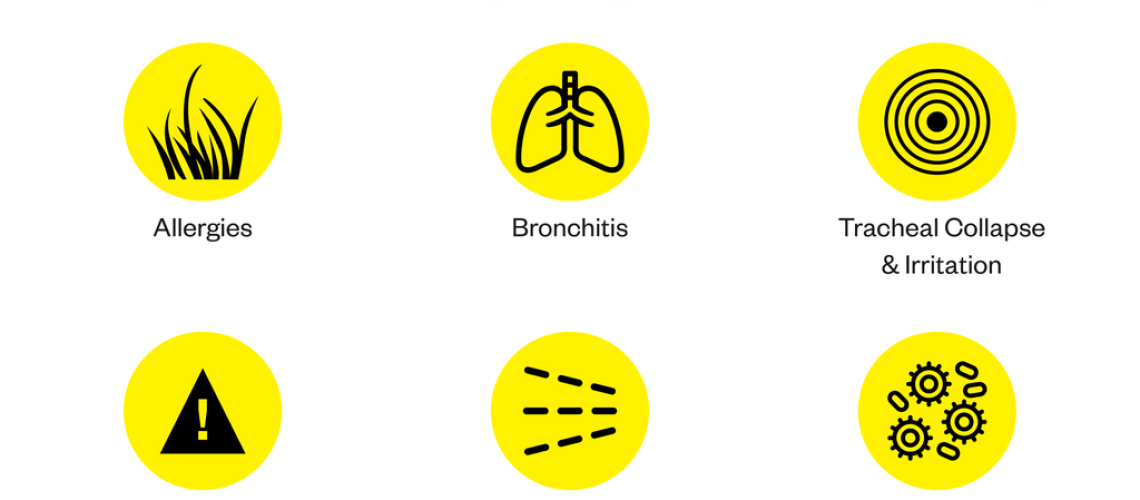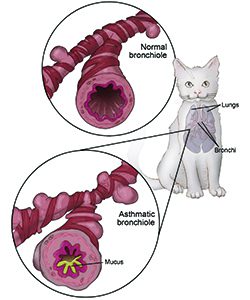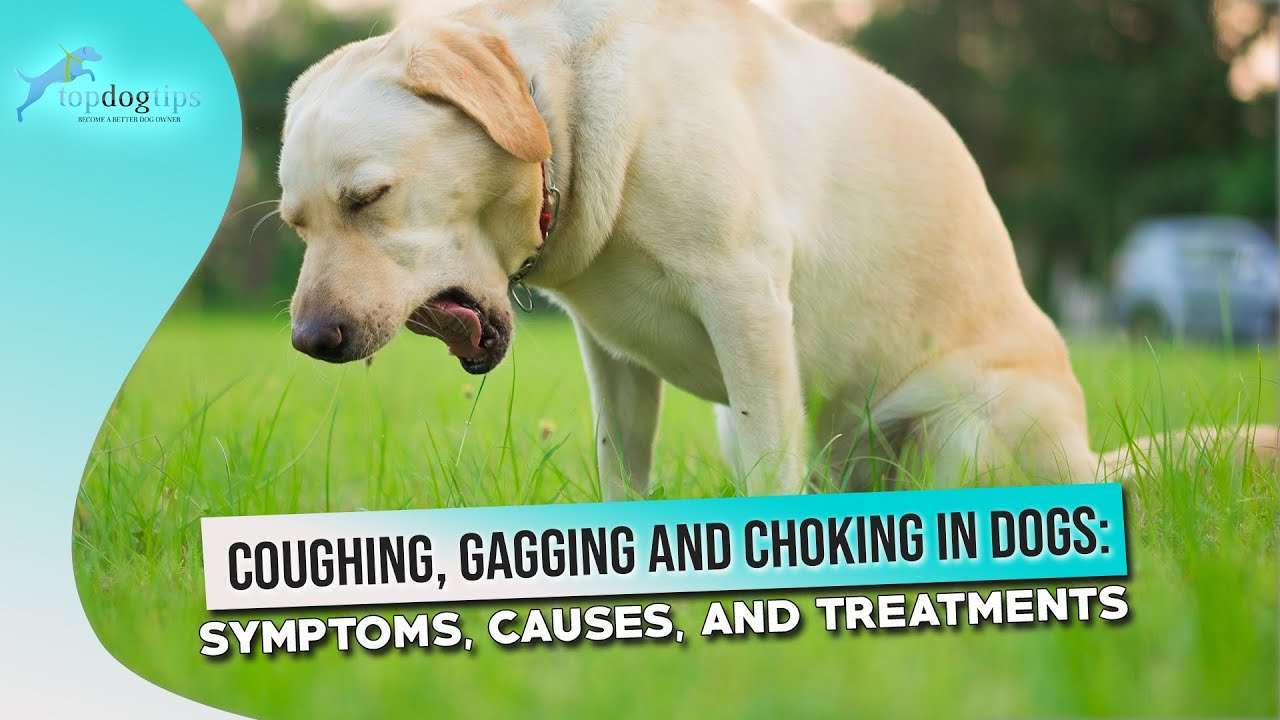Key Takeaways:
- Wheezing in dogs can be caused by various factors, including allergies, respiratory infections, heart disease, or foreign objects in the airways.
- If your dog is wheezing, it is important to monitor their breathing and look for other symptoms such as coughing, difficulty breathing, or lethargy.
- A visit to the veterinarian is crucial to determine the underlying cause of the wheezing and provide appropriate treatment.
- Preventing exposure to triggers such as allergens or smoke can help reduce wheezing episodes in dogs with respiratory conditions.
- In some cases, wheezing may require immediate medical attention as it could indicate a life-threatening condition like an asthma attack or heart failure.
Introduction:
Is your furry friend wheezing? If so, you're in the right place! Understanding why your dog is wheezing can not only bring relief to your beloved pet but also ensure their overall well-being. In this article, we will explore the reasons behind dog wheezing and how you can help them breathe easier. So, let's dive in and discover the secrets to a happy and healthy pup!
Word count: 64
What is causing my dog to make wheezing sounds?
When your dog makes wheezing sounds, it could be due to a variety of reasons. One common cause is respiratory infections, such as kennel cough or pneumonia. These infections can lead to inflammation and narrowing of the airways, making it difficult for your dog to breathe properly. Another possible cause is allergies, which can be triggered by things like pollen, dust mites, or certain foods. Allergies can cause swelling and irritation in the airways, leading to wheezing.
In some cases, wheezing may also be a symptom of a more serious condition called tracheal collapse. This occurs when the cartilage rings in the trachea become weak and start to collapse, obstructing the airflow. Other potential causes include heart problems or foreign objects stuck in the airway.
Respiratory Infections
Respiratory infections are caused by viruses or bacteria that affect the respiratory system. They can spread easily among dogs in places like kennels or dog parks. The most common respiratory infection in dogs is kennel cough, which causes a dry hacking cough and can sometimes progress to wheezing.
Treatment for respiratory infections usually involves medication prescribed by a veterinarian, such as antibiotics or cough suppressants. It's important to keep your dog away from other dogs while they are contagious to prevent further spread of the infection.
Symptoms of Respiratory Infections:
- Coughing
- Sneezing
- Nasal discharge
- Fever
- Lethargy
Allergies
Allergies occur when the immune system overreacts to certain substances, causing an allergic reaction. Dogs can be allergic to a variety of things, including pollen, dust mites, mold spores, and certain foods. When a dog with allergies is exposed to these triggers, their body releases histamines, which can cause inflammation and constriction of the airways.
If your dog has allergies that are causing wheezing, your veterinarian may recommend allergy testing to identify the specific triggers. Treatment options may include antihistamines, corticosteroids, or allergen-specific immunotherapy (allergy shots).
Symptoms of Allergies:
- Itchy skin
- Red or inflamed skin
- Sneezing
- Runny nose
- Coughing or wheezing
How can I tell if my dog's wheezing is a serious problem?
If your dog is wheezing, it is important to determine whether it is a serious problem or not. Wheezing in dogs can be caused by various factors, including allergies, respiratory infections, heart conditions, or even foreign objects lodged in the airways. One way to assess the severity of your dog's wheezing is to observe their overall behavior and activity level. If your dog's wheezing is accompanied by other concerning symptoms such as difficulty breathing, coughing up blood, or lethargy, it may indicate a more serious issue that requires immediate veterinary attention. Additionally, if your dog has a history of respiratory problems or if the wheezing persists for an extended period of time without improvement, it is advisable to consult with a veterinarian for a proper diagnosis and treatment plan.
Signs to look out for:
- Difficulty breathing
- Coughing up blood
- Lethargy
- Persistent wheezing
When to seek veterinary care:
If your dog exhibits any of the signs mentioned above or if you are unsure about the severity of their wheezing, it is always best to err on the side of caution and consult with a veterinarian. They will be able to conduct a thorough examination and provide appropriate guidance based on your dog's specific condition.
Common allergies that could lead to wheezing in dogs
Allergies can be a common cause of wheezing in dogs. Just like humans, dogs can develop allergies to certain substances in their environment. Some common allergens that may contribute to wheezing include pollen from trees, grasses, or weeds; dust mites; mold spores; and certain types of food. When dogs inhale these allergens or come into contact with them, their immune system may overreact, leading to symptoms such as wheezing, itching, sneezing, or skin rashes.
Common allergens:
- Pollen from trees, grasses, or weeds
- Dust mites
- Mold spores
- Certain types of food
It is important to note that not all dogs will be allergic to the same substances. Some breeds may be more prone to certain allergies than others. If you suspect that your dog's wheezing is due to allergies, it is recommended to consult with a veterinarian who can perform allergy testing and help identify the specific triggers causing your dog's symptoms.
Can dust or pollen contribute to my dog's wheezing?
Yes, dust and pollen can contribute to your dog's wheezing if they are allergic to these substances. Dogs can inhale dust particles or come into contact with pollen while outdoors, triggering an allergic reaction in their respiratory system. When dogs with allergies are exposed to these allergens, their airways may become inflamed and constricted, leading to wheezing and difficulty breathing.
How dust and pollen affect dogs:
When dogs inhale dust or pollen particles, their immune system recognizes these substances as harmful invaders and releases chemicals such as histamine. Histamine causes inflammation in the airways and leads to symptoms like wheezing. Additionally, dogs may also experience itching, sneezing, watery eyes, or skin irritations as a result of exposure to dust or pollen.
To minimize your dog's exposure to dust and pollen indoors, it is recommended to regularly clean your home by vacuuming carpets and upholstery, using air purifiers with HEPA filters, and keeping windows closed during high-pollen seasons. When taking your dog outside during allergy seasons, try to avoid areas with high levels of pollen, such as fields or parks with blooming flowers.
Are certain dog breeds more prone to wheezing?
Yes, certain dog breeds are more prone to wheezing than others. Brachycephalic breeds, which have short noses and flat faces, are particularly susceptible to respiratory issues that can cause wheezing. Examples of brachycephalic breeds include Bulldogs, Pugs, Boston Terriers, and Shih Tzus. These breeds often have narrowed airways and elongated soft palates, making it harder for them to breathe properly.
Common brachycephalic breeds:
- Bulldogs
- Pugs
- Boston Terriers
- Shih Tzus
It is important for owners of brachycephalic dogs to be aware of the potential breathing difficulties these breeds may face. Wheezing in these dogs should not be taken lightly and should be evaluated by a veterinarian to ensure their respiratory health is properly managed.
Tips to help alleviate your dog's wheezing at home
While it is always recommended to consult with a veterinarian for proper diagnosis and treatment of your dog's wheezing, there are some steps you can take at home to help alleviate their symptoms.
Home remedies for dog wheezing:
1. Keep your home clean: Regularly vacuum carpets and upholstery to minimize dust accumulation.
2. Use air purifiers: Consider using air purifiers with HEPA filters to reduce airborne allergens.
3. Avoid triggers: Identify and avoid potential allergens that may be causing your dog's wheezing.
4. Maintain a healthy weight: Obesity can worsen respiratory issues in dogs, so ensure your dog maintains a healthy weight through proper diet and regular exercise.
5. Provide a calm environment: Stress or anxiety can exacerbate respiratory symptoms, so create a calm and relaxing environment for your dog.
6. Consult with a veterinarian: If your dog's wheezing persists or worsens, it is important to seek professional veterinary care for a proper diagnosis and treatment plan.
Remember, these tips can help alleviate mild cases of wheezing, but it is crucial to consult with a veterinarian for a comprehensive evaluation and appropriate medical intervention if needed.
In conclusion, wheezing in dogs can be caused by various factors such as allergies, respiratory infections, or underlying health conditions. It is important to consult a veterinarian to determine the cause and provide appropriate treatment for your furry friend's wheezing.
Should I be worried if my dog is wheezing?
If your dog wheezes for only a few seconds, it is probably not a cause for concern. However, if your dog wheezes regularly or experiences other symptoms alongside the wheezing, it may be a sign of a serious health problem that requires a trip to the veterinarian.
Why is my dog making a weird wheezing noise?
Dogs may produce unusual breathing sounds for different reasons including respiratory infections, allergies, or blockages in their airways. It is crucial to observe your dog's breathing and seek medical attention if you observe any abnormal breathing noises.
Why does my dog wheeze when he is lying down?
On the other hand, dogs may experience wheezing or coughing that may intensify during the night or when they are in a lying position. This could indicate the presence of heart disease or congestive heart failure. Congestive heart failure can lead to the accumulation of fluid in a dog's lungs, particularly during extended periods of lying down or at night.
Can dog wheezing go away on its own?
There are multiple possible explanations for why your dog may be wheezing. Many times, wheezing is not a serious issue and is considered normal. Mild wheezing typically resolves on its own without intervention. However, in some cases, wheezing may indicate a need for veterinary attention and treatment.
Can I give my dog Benadryl for wheezing?
While Benadryl can be very effective in addressing environmental allergies, it may not be as helpful if your dog is experiencing breathing difficulties. In such cases, it is recommended to consult your veterinarian immediately for guidance.
Why does my dog sound like he's gasping for air?
Allergens can have an impact on your dog and cause them to experience difficulty breathing and coughing fits as their mouth and throat go into spasms. In more serious cases, these symptoms may be caused by viral infections that lead to inflammation of the nasal passages. Additionally, microscopic mites called nasal mites can irritate the dog's nasal passage and also contribute to the spasms and gasping for air.

















